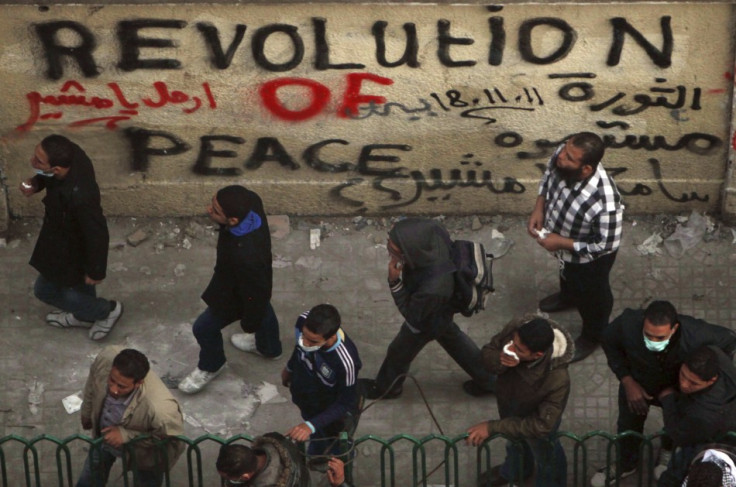Egyptian Revolution: What Lies Ahead?

As parliamentary elections continue in Egypt, 10 months after president Hosni Mubarak stepped down, the country is still fighting its revolution.
Egyptians returned to the polls in the run-off for the staggered parliamentary elections, in which 118 candidates are competing for 59 seats in the People's Assembly.
The marathon elections have been marred by continuing unrest and violent clashes between protesters and the army.
The Supreme Council of the Armed Forces, headed by Field Marshal Mohamed Hussein Tantawi and other former Mubarak officials, has found itself increasingly besieged as frustration boils over that democratic changes are too slow or even that the new regime is as authoritarian as the last one.
The military apparatus was praised for refusing to shoot protesters a few months ago; now it is accused of conducting a deadly crackdown in which 14 people have been killed in the last few weeks alone and hundreds injured.
Egyptians have complained about the security forces using force, teargas, water cannons and live ammunition against demonstrators and targeting women demonstrators by using rape and sexual assault as weapons.
Citizens were angered by shocking pictures that emerged of soldiers beating up a female protester, which resulted in 10,000 women marching in Cairo.
Political activists have been arrested and some are still in custody as unrest continues.
The military council apologised for the beating. It expressed "strong regret to the great women of Egypt over transgressions that occurred during recent incidents in the protests outside parliament and the cabinet".
Such statements are insufficient, however, to diffuse the tension that has built up across the country.
Pro-democracy activists and protesters have vowed to continue their struggle until a civilian government is established.
With the Muslim Brotherhood's Freedom and Justice Party and the ultra-conservative Salafi Nour Party poised to dominate parliament, Egypt remains a country fragmented by its secularists and religious tendencies.
© Copyright IBTimes 2025. All rights reserved.



















